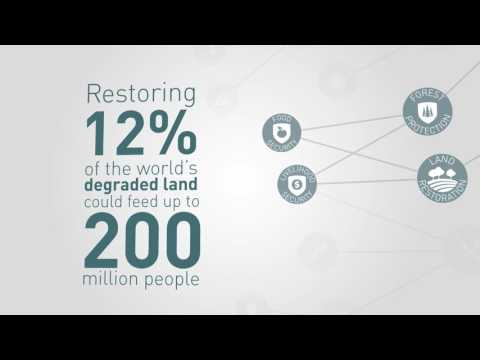The economic and social benefits of climate action are enormous.
Watch more videos on environment, conflict, cooperation, and climate diplomacy on our video platform.
"We are facing a major challenge. If it is not addressed, the consequences will be costly. It is clear from the science that time is running out to act on climate change. But many believe that climate action is too expensive. It seems we have a choice to make. But do we? Is this really a dilemma?
The next 15 years of investment will be decisive. Over this time we are expected to spend 89 trillion dollars on the world’s infrastructure. So we should be asking ourselves: How do we invest to foster sustainable economic development? How do we invest to maximise prosperity and minimise risks? In short, how do we invest our money wisely?
By increasing our investment from 89 to 93 trillion dollars we can make our infrastructure climate compatible. This is a higher upfront cost, but the benefits down the track are huge.
There are many key economic sectors where climate smart investments can achieve multiple real world benefits. Renewable energy improves energy security, creates jobs and reduces air pollution. Every year 8 million deaths globally can be attributed to exposure to air pollution indoor and outdoor.
Protecting forests and restoring agricultural lands reduces emissions whilst also boosting food and livelihood security.
Restoring just 12 % of the world’s degraded land could feed 200 million people by 2030. Most of the infrastructure will be built in cities and once it is built, it will be hard to change. Implementing solutions like smarter urban planning, better public transport and efficient buildings we can not only reduce emissions in the long term, but also help build more efficient, competitive, and livable cities. These cascading benefits of climate action appear in many other policy areas. And even though they are usually difficult to quantify, they are real and significant.
What is often overlooked, is that there are many costs associated with our high-carbon systems. Costs that are locked in and have a high risk of growing in the future. Globally, the fossil fuel subsidies reached 490 billion dollars in 2014.
We need to shift our economy onto a sustainable climate compatible path. It requires higher up front investments but it will be much cheaper in the long term. International financing mechanisms as well as technology sharing institutions are available to support this process.
All policy makers have the power to integrate this big picture into their decision making. Cooperation across sectors and regions is needed fully realise the benefits of climate compatible policies.
If we look at the bigger picture, protecting the climate and creating prosperity is within our grasp. Let us seize our opportunity to shift the economy onto a climate-compatible path. Let us invest wisely. Let us realize the benefits of climate action."
Data sources:
Global Commission on the Economy and Climate (2014). Better Growth, Better Climate. The New Climate Economy Report. Washington, DC.
Global Commission on the Economy and Climate (2015). Seizing the Global Opportunity. Partnerships for Better Growth and a Better Climate. The 2015 New Climate Economy Report. Washington, DC.
International Energy Agency (2015). World Energy Outlook 2015. Executive Summary. Paris: OECD/IEA.
WHA (2015). Health and the Environment: Addressing the Health Impact of Air Pollution. Sixty-Eighth World Health Assembly. 26 May 2015.









